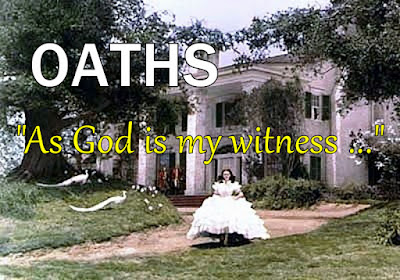IN THE IMAGE OF GOD
This is the first in the sermon series, "Wholeness in Christ."
Luke 10:25-28
Genesis 1:24-27
God spoke: "Let us make human beings in our image, make them reflecting our nature..."
Genesis 1:26 (The Message)

Part of the purpose statement of the United Methodist Women is to "...know God and to experience freedom as whole persons through Jesus Christ. It's something I think worthy of all Christians to aspire to. But what does it mean to be a whole person and to live holistically through Jesus Christ? It speaks to the nature of who we are as human beings and that means to first examine the nature of God whose image we are made in and base the concept of our wholeness in that.
Image. Imagine. Imagination.
God, all loving and all powerful, imagined a creation filled with beauty and wonders, spoke it into existence and smiled. It was good. And into this community of stars and starfish, mountains and plains, rainstorms and oceans, sunsets and moon rises, beasts and plants and minerals, He wanted to share it with someone who was capable of loving it as much as He did.
God spoke: "Let us make human beings in our image .. " reads The Message version of Genesis 1:26.
So what is that image? How do you imagine God? As a kindly old grandfatherly type or a bearded deity, angry and ready to rain fire and brimstone upon all who defy him? Both of these are often depicted in humanoid form, but Paul, in Ephesians 5:1-2, directs us to imagine God's nature.
"Therefore, be imitators of God, as beloved children and live in love, as Christ loved us and gave himself up for us, a fragrant offering and sacrifice to God." (NRSV)
Through Christ, God shows us God's true nature: unconditionally loving, self-giving, self-sacrificing, and other centered and affirming. When we think of Christ, what other words come in mind that describe the nature of God? Merciful, compassionate, forgiving, just, a heart for the lost and the least? To be imitators of God means to be to live a life that reflects God's nature.
"Let us make human beings in our image, make them reflecting our nature..." (Genesis 1:26, The Message)
There's part of God's nature, that mysterious aspect we refer as the "Trinity." Christ, in the Gospel of John, explains the Trinity in terms of relationship. "I am in the Father, and the Father is me, as I am you." (John 14:11). In John 14:26 and John 15:26, we're told that the Holy Spirit proceeds, is sent, from both the Father and the Son. So we're given the image of these three aspects of God as being linked, each part of the other. Whether our experience God the Father or God the Son or God the Holy Spirit, the other two are present, also.

In my own spiritual journey with Christ, I have come to realize that, as reflections of God's nature, there is a human trinity (please note the small "t"). The "Greatest Commandment," that Christ quotes in the the Gospels of Matthew, Mark and Luke, implies that our relationship with God concerns not just our soul, but our total being -- mind, body and soul. To be an imitator of God is not to try to separate these into neat compartments of our lives but to see ourselves as whole, integrated beings, not just a soul residing in a temporary home of flesh.

In the field of holistic healing, mind, body and soul are seen as linked and interconnected. Each one impacts the other, and when they are in balance with each other, when we give care and attention and care to each of these aspects of our being, health, that is wholeness, is the result.
I've learned the hard way that "being too heavenly minded," that is, creating a dysfunctional situation where the health of my body and mind were seen as unimportant, made me of "no earthly good." The imbalance in my life affected my ability to be a pastor and a wife, all of my relationships, and resulted in multiple health problems.
Self-care, attending to our bodies and minds as well as our souls, is often seen as selfish. If it is only to benefit ourselves, I think it is, but when I began it imagine self-care in a new way, as a spiritual practice, I have discovered its importance to a whole and transformational relationship with God and with others.
Human beings are created in the image of God, intentened to reflect all of God's nature. We are to love as Christ has loved us, and we are created for healing and wholeness.
I am looking forward in the coming weeks to sharing with you the insights and lessons I have learned on my own journey with Jesus. My prayer is that you, too, may experience freedom as whole persons through Jesus Christ.
Luke 10:25-28
Genesis 1:24-27
God spoke: "Let us make human beings in our image, make them reflecting our nature..."
Genesis 1:26 (The Message)

Part of the purpose statement of the United Methodist Women is to "...know God and to experience freedom as whole persons through Jesus Christ. It's something I think worthy of all Christians to aspire to. But what does it mean to be a whole person and to live holistically through Jesus Christ? It speaks to the nature of who we are as human beings and that means to first examine the nature of God whose image we are made in and base the concept of our wholeness in that.
Image. Imagine. Imagination.
God, all loving and all powerful, imagined a creation filled with beauty and wonders, spoke it into existence and smiled. It was good. And into this community of stars and starfish, mountains and plains, rainstorms and oceans, sunsets and moon rises, beasts and plants and minerals, He wanted to share it with someone who was capable of loving it as much as He did.
God spoke: "Let us make human beings in our image .. " reads The Message version of Genesis 1:26.
So what is that image? How do you imagine God? As a kindly old grandfatherly type or a bearded deity, angry and ready to rain fire and brimstone upon all who defy him? Both of these are often depicted in humanoid form, but Paul, in Ephesians 5:1-2, directs us to imagine God's nature.
"Therefore, be imitators of God, as beloved children and live in love, as Christ loved us and gave himself up for us, a fragrant offering and sacrifice to God." (NRSV)
Through Christ, God shows us God's true nature: unconditionally loving, self-giving, self-sacrificing, and other centered and affirming. When we think of Christ, what other words come in mind that describe the nature of God? Merciful, compassionate, forgiving, just, a heart for the lost and the least? To be imitators of God means to be to live a life that reflects God's nature.
"Let us make human beings in our image, make them reflecting our nature..." (Genesis 1:26, The Message)
There's part of God's nature, that mysterious aspect we refer as the "Trinity." Christ, in the Gospel of John, explains the Trinity in terms of relationship. "I am in the Father, and the Father is me, as I am you." (John 14:11). In John 14:26 and John 15:26, we're told that the Holy Spirit proceeds, is sent, from both the Father and the Son. So we're given the image of these three aspects of God as being linked, each part of the other. Whether our experience God the Father or God the Son or God the Holy Spirit, the other two are present, also.

In my own spiritual journey with Christ, I have come to realize that, as reflections of God's nature, there is a human trinity (please note the small "t"). The "Greatest Commandment," that Christ quotes in the the Gospels of Matthew, Mark and Luke, implies that our relationship with God concerns not just our soul, but our total being -- mind, body and soul. To be an imitator of God is not to try to separate these into neat compartments of our lives but to see ourselves as whole, integrated beings, not just a soul residing in a temporary home of flesh.
In the field of holistic healing, mind, body and soul are seen as linked and interconnected. Each one impacts the other, and when they are in balance with each other, when we give care and attention and care to each of these aspects of our being, health, that is wholeness, is the result.
I've learned the hard way that "being too heavenly minded," that is, creating a dysfunctional situation where the health of my body and mind were seen as unimportant, made me of "no earthly good." The imbalance in my life affected my ability to be a pastor and a wife, all of my relationships, and resulted in multiple health problems.
Self-care, attending to our bodies and minds as well as our souls, is often seen as selfish. If it is only to benefit ourselves, I think it is, but when I began it imagine self-care in a new way, as a spiritual practice, I have discovered its importance to a whole and transformational relationship with God and with others.
Human beings are created in the image of God, intentened to reflect all of God's nature. We are to love as Christ has loved us, and we are created for healing and wholeness.
I am looking forward in the coming weeks to sharing with you the insights and lessons I have learned on my own journey with Jesus. My prayer is that you, too, may experience freedom as whole persons through Jesus Christ.



Comments
Post a Comment